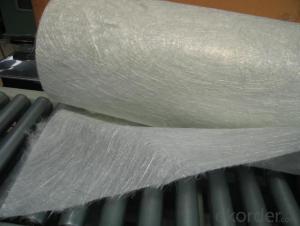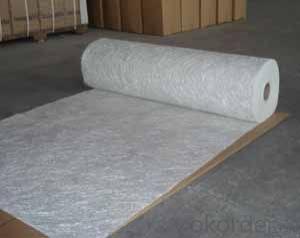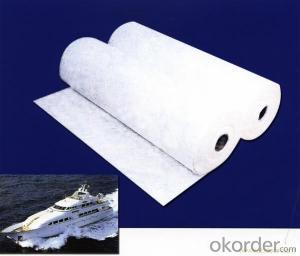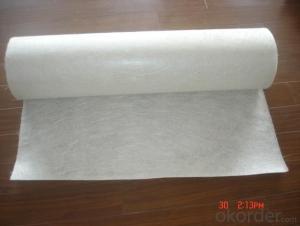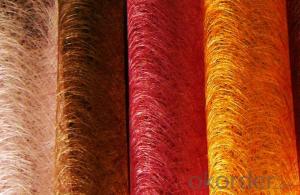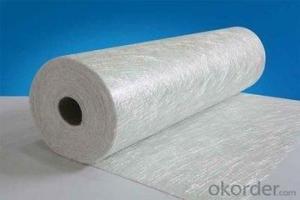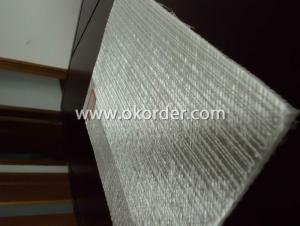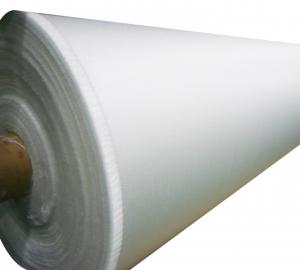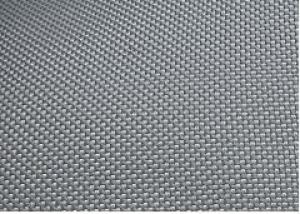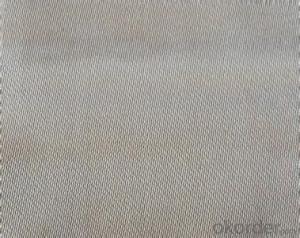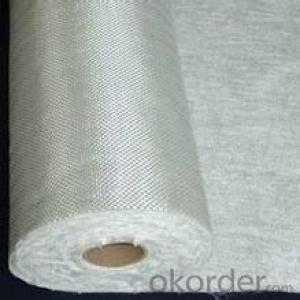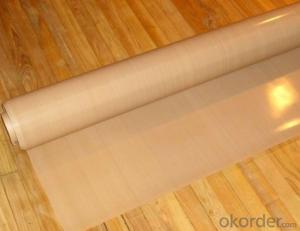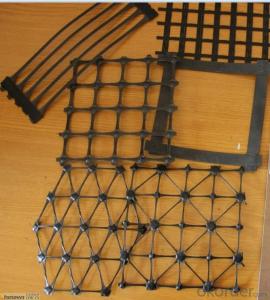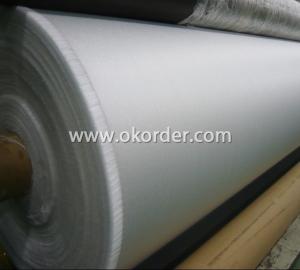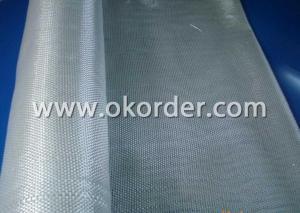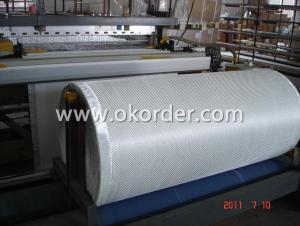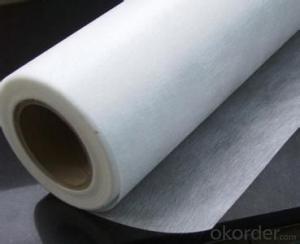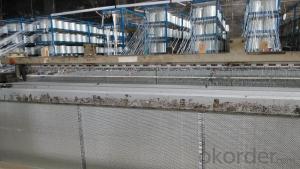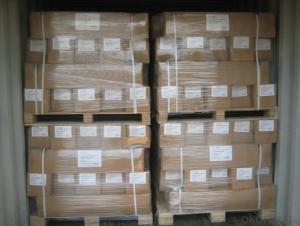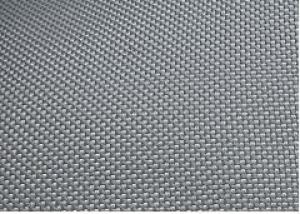Fibreglass Supplies/Fiberglass Reinforced Polymer
- Loading Port:
- Tianjin
- Payment Terms:
- TT OR LC
- Min Order Qty:
- 100 m.t.
- Supply Capability:
- 20000 m.t./month
OKorder Service Pledge
OKorder Financial Service
You Might Also Like
Quick Details
| Place of Origin: | Hebei, China (Mainland) | Brand Name: | Yuniu | Model Number: | thermoplastic Chopped Strands |
| Application: | thermoplastic | Surface Treatment: | silane | Technique: | chopping |
| Length: | 3-22mm | Quality: | Perfect | Certificate: | ISO9001:2000 |
| Color: | White |
Packaging & Delivery
| Packaging Details: | bag, pallet |
| Delivery Detail: | 7 days after the payment |
Specifications
Glass fibre Chopped Strands for concrete are designed for reinforcing PP, PA,PET, PBT POM, PPS and PC
Glass fibre Chopped Strands mainly used in injection and compression molding processes and its typical end-use applications include automotive industry, home appliances, valves, pump housings, chemical corrosion resistance and sports apparatus.
Product Features
1.Good strand integrity, low static and good flowability;
2.Fast and uniform distribution in resins, good processing properties and good mechanical
properties of the end products;
3.Good bonding with resins. No fiber sticking out at the surface of the end products and aesthetic
appearance.
Technical parameters
Filament Diameter(%): ±10
Moisture Content(%): ≤0.10
Size Content(%): 0.75±0.20
Chop Length (mm): ±1.0
Chop ability(%): ≥98
Packaging
Glass fibre Chopped Strands can be packed in bulk bags, cardboard boxes or composite plastic woven bags;
Bulk bags can hold 500kg~1000kg each;
Cardboard boxes and composite plastic woven bags can hold 15kg~25kg each.
Storage
Unless otherwise specified, fiberglass products should be stored in a dry, cool and rain-proof area. It is recommended that the room temperature and humidity should be always maintained at 15-35,35%-65% respectively.
Picture
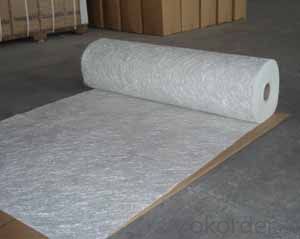
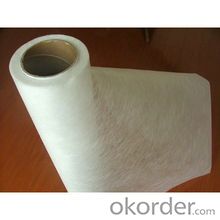
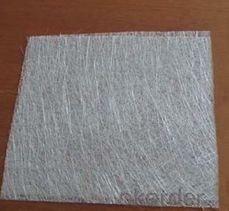
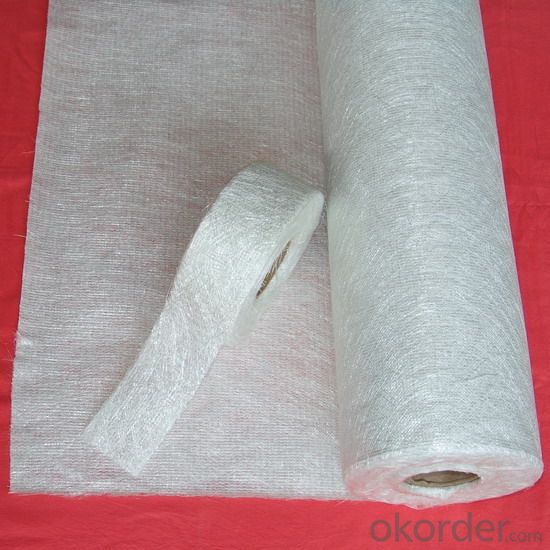
- Q:How is fiberglass fabric used in the production of aircraft interiors?
- Fiberglass fabric is commonly used in the production of aircraft interiors for its lightweight, durable, and fire-resistant properties. It is typically used as a reinforcement material in the production of composite panels, which are used for various components such as cabin walls, overhead compartments, and interior panels. The fiberglass fabric is often combined with resin to create a strong and rigid composite structure that meets the stringent safety standards required for aviation. Additionally, fiberglass fabric can be molded into intricate shapes, allowing for customized designs and a seamless finish in aircraft interiors.
- Q:Is fiberglass fabric resistant to flame spread?
- Yes, fiberglass fabric is resistant to flame spread.
- Q:What are the typical applications of fiberglass fabrics?
- Fiberglass fabrics are commonly used in applications that require strength, durability, and resistance to heat and chemicals. Some typical applications include insulation, reinforcement in composite materials, construction of boats and automobile bodies, manufacturing of aerospace components, and production of sports equipment such as surfboards and canoes.
- Q:Can fiberglass fabric be used for tents and awnings?
- Certainly, tents and awnings can be made using fiberglass fabric. This material is widely preferred for outdoor use because of its resilience, robustness, and ability to withstand extreme weather conditions. Despite being lightweight, it is remarkably sturdy, making it an optimal choice for constructing tents and awnings. Furthermore, fiberglass fabric possesses fire-resistant qualities and offers exceptional UV protection, ensuring a secure and pleasant outdoor experience. It also boasts excellent insulation properties, which help maintain a comfortable temperature inside the tent or beneath the awning. All in all, fiberglass fabric is a dependable and versatile option for tents and awnings, delivering both protection and endurance in diverse outdoor environments.
- Q:Is fiberglass fabric resistant to chemicals in automotive fluids?
- Yes, fiberglass fabric is generally resistant to chemicals in automotive fluids.
- Q:Can fiberglass fabric be used for reinforcement in oil processing tanks?
- Indeed, the utilization of fiberglass fabric proves to be viable for the purpose of reinforcement within oil processing tanks. The exceptional attributes of high strength-to-weight ratio, resistance to corrosion, and durability are all well-known characteristics of fiberglass fabric. Consequently, it becomes an optimal material for enhancing the structural integrity of tanks enduring harsh environments, such as those found in oil processing. The application of this fabric onto the tanks can be executed through either the wet lay-up or vacuum infusion process, guaranteeing a proper adhesion and integration with the tank structure. Furthermore, the non-conductive and non-magnetic properties of fiberglass fabric render it suitable for implementation within tanks housing flammable or sensitive substances. In summary, the utilization of fiberglass fabric provides a reliable and cost-effective solution for reinforcing oil processing tanks.
- Q:How does fiberglass fabric perform in fatigue strength?
- The exceptional performance of fiberglass fabric in terms of fatigue strength is well-known. Fatigue strength refers to the ability of a material to withstand repeated cycles of loading and unloading without failure. The unique structure and composition of fiberglass fabric contribute to its outstanding fatigue strength. It is composed of fine strands of glass fibers that are woven together to create a fabric. These fibers possess high tensile strength, enabling them to resist pulling forces without breaking. When exposed to cyclic loading, such as bending or flexing, fiberglass fabric demonstrates a remarkable resistance to fatigue. The flexibility and elasticity of the glass fibers allow the fabric to absorb and distribute stress evenly, preventing the accumulation of localized damage that could result in failure. Moreover, fiberglass fabric exhibits a relatively low coefficient of thermal expansion, meaning it undergoes minimal expansion or contraction in response to temperature changes. This stability helps to maintain its fatigue strength even in varying environmental conditions. Overall, fiberglass fabric is widely acknowledged for its excellent fatigue strength, making it a preferred choice of material in applications where repeated loading and unloading cycles are anticipated. These applications include the construction of composite structures, aerospace components, and sports equipment.
- Q:Can fiberglass fabrics be used for insulation in HVAC ductwork?
- Indeed, insulation in HVAC ductwork can be achieved by employing fiberglass fabrics. The utilization of fiberglass fabrics in HVAC ductwork insulation is widespread, owing to their remarkable thermal attributes and fire resistance. By enveloping the ductwork with a layer of insulation, these fabrics facilitate the reduction of heat transfer and the prevention of energy loss. Furthermore, fiberglass fabrics boast a seamless installation process and the ability to be tailored precisely to meet the unique demands of the ductwork. Moreover, their durability and resistance to moisture render them appropriate for application in both residential and commercial HVAC systems.
- Q:How does fiberglass fabric perform in compression strength?
- Fiberglass fabric performs relatively well in compression strength due to its inherent stiffness and resistance to deformation. It can withstand high compressive forces without significant damage or failure, making it suitable for applications requiring structural support or load-bearing capabilities.
- Q:Silicone rubber and glass fiber cloth, capable of curing 300 degrees of adhesion method?
- Good electrical insulation properties. The electrical insulation properties of silicone rubber vulcanizates vary little when moisture, frequency, or temperature rise. The silicon dioxide produced after combustion is still an insulator. In addition, the molecular structure of silicone rubber is less carbon atoms, and does not use carbon black as filler, so it is not easy to scorch when arc discharge. Therefore, it is very reliable to use it in high pressure places
1. Manufacturer Overview |
|
|---|---|
| Location | |
| Year Established | |
| Annual Output Value | |
| Main Markets | |
| Company Certifications | |
2. Manufacturer Certificates |
|
|---|---|
| a) Certification Name | |
| Range | |
| Reference | |
| Validity Period | |
3. Manufacturer Capability |
|
|---|---|
| a)Trade Capacity | |
| Nearest Port | |
| Export Percentage | |
| No.of Employees in Trade Department | |
| Language Spoken: | |
| b)Factory Information | |
| Factory Size: | |
| No. of Production Lines | |
| Contract Manufacturing | |
| Product Price Range | |
Send your message to us
Fibreglass Supplies/Fiberglass Reinforced Polymer
- Loading Port:
- Tianjin
- Payment Terms:
- TT OR LC
- Min Order Qty:
- 100 m.t.
- Supply Capability:
- 20000 m.t./month
OKorder Service Pledge
OKorder Financial Service
Similar products
New products
Hot products
Hot Searches
Related keywords
